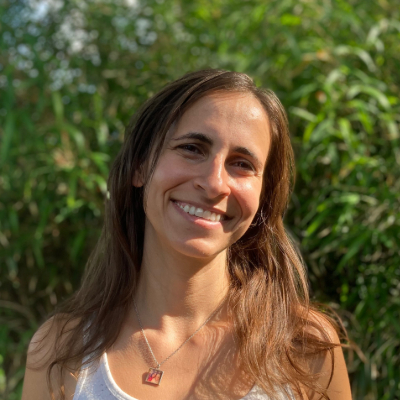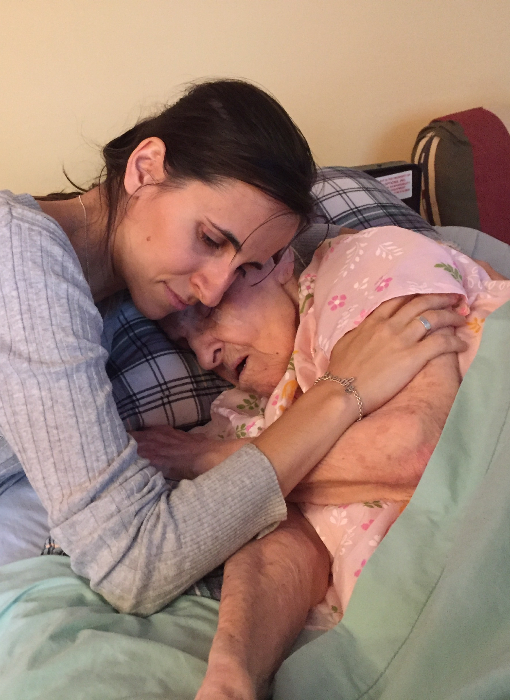Grief Tender
Dr. Joanie Terrizzi
Grief Coaching & Support

We are meant to grieve.
We are not meant to grieve alone.
We are meant to grieve together.
Are you ready to integrate your grief?
Is your grief holding you, or are you holding your grief? Life moves forward, and whether we look directly at it or not, our grief moves with us. Carrying or suppressing grief can weigh us down and cast a haze over our daily lives. Integrating grief can balance our emotional world and re-inspire hope.
Humans have greater capacity than we often realize: we are made to love, to grieve, and to integrate our grief.
Learn more by listening to the podcast All The Things – I was interviewed for an episode titled Grief, loss and integration w/ Dr. Joanie Terrizzi.

Hello
I’m Joanie
I was first bereaved as a baby, and therefore say that “I am not an immigrant to grief.” Throughout my life I have gravitated towards the bereaved and grieving; even as a child, I had an aptitude for ‘being right there’ with those who lost a loved one. During my Ph.D. program, I took several courses on end-of-life and death and trained as a Death Doula. I integrated this content with my personal and professional background in mindfulness. Through all this learning and growth, I have yearned to sit with those who are grieving, to help them make meaning of and integrate their experiences.

No one can take away your grief entirely. However, when you integrate your grief, you will likely experience less suffering. I see every ounce of integration as a deep gift that yields greater aliveness.
Learn about my background and other modalities I’m trained in:

What do I offer as your grief coach?
I serve as an anchor and help support you as you move gently through your grief. Grief can be unbearable at times. Knowing that someone is by your side and enrolled in your trajectory toward healing can make all the difference.
As your grief coach, I am also here to answer questions you have about grief or the grieving process; I will listen, guide, and support you as you navigate your grief journey by creating customized micro-goals to move with and through your grief – at your pace. Daily and long-term life activities and general planning may become more manageable as you integrate your grief.
Grief integration has no timeline. We may work together for a few sessions or on an ongoing basis. I will be here for you as long as your grief needs tending.
There is so much that we grieve for aside from human life – grief coaching can help us navigate endings, beginnings, changes, and situations where we experience delayed grief, cumulative grief, or ambiguous grief. Whereas a therapeutic approach to grief may include the cognitive and emotional processing associated with loss, grief coaching helps your grief integrate, starting right where you are now. Even subtle changes, made through capitalizing on your strengths, can help dislodge “stuck” grief and reclaim your vitality while grieving.
Grief coaching differs from grief therapy. Together, we will determine which approach is appropriate for you. Together, we focus on moving forward wholeheartedly with grief as a part of you that nourishes, rather than depletes your aliveness.
What does it mean to “integrate” my grief?
Grief forever changes us. We cannot go back to the way things were before a significant loss changed the shape of our lives. We can, however, find vibrancy in our lives as they are – even if life looks quite different than what we expected.
Unsupported grief can feel overwhelming. Supported grief allows us to grow and find parts of ourselves that are big enough to hold our grief and continue with the meaningful and necessary pieces of our lives. Unintegrated grief is much like a shock that stays buzzing next to us until we are willing and able to deeply accept and allow the grief to be a part of us.
When we integrate our grief, we have greater access to our full range of emotions, our true capacity to thrive, and increased wisdom and empathy. This has been my experience with deep grief; when my grief is integrated, I feel like there is enough space for me, enough space for my grief, and enough space for the rest of my life.

Wait, what is ambiguous grief?
An ambiguous loss happens when a person we care about is either physically or psychologically absent. We grieve an ambiguous physical absence through breakups, abandonment, pregnancy loss, and so many more heartbreaking circumstances. We grieve a psychological absence when our loved ones drift away through dementia, mental illness, depression, and addiction. Our grief may be ambiguous when we experience any profound change or disappearance wherein familiar aspects of life fade away. Profound ambiguous grief may be the result of a significant loss outside of our mental grasp – such as when a parent dies before a child has any memory of them. Our grief may be ambiguous when we feel an overwhelming sense of loss, but we are not quite sure what we’ve lost. Non-human losses may also prompt ambiguous grief that weighs us down. Some of these griefs may take decades to come to our attention.
Not all griefs are specific and clear. All griefs are here to be felt. All griefs matter.


Do you work with the kind of grief I’m feeling?
Yes. If you feel grief, would like support with your grieving process and don’t want to feel alone with your grief, I would be honored to work with you.
The types of grief I work with include: anticipatory grief, delayed grief, complicated grief, chronic grief, disenfranchised grief, masked grief, cumulative grief, secondary losses associated with grief, inhibited grief, collective grief, bystander grief (such as when your dear friend or partner has experienced profound loss, and you need support as well), and ambiguous grief.
Losses I work with include both those that are sudden and those that are expected: human life lost to death, a serious diagnosis for oneself or a loved one, relationship breakup, a friendship ending, moving, death of a pet, job change, loss of physical ability, graduation, financial shifts, mortality awareness due to a famous person’s death, retirement, infertility, loss of community, family estrangement, loss of meaningful belongings/mementos, loss of culture, environmental grief, societal grief, and the amorphous feeling of loss of the life not lived. This list is by no means exhaustive, and these losses may be recent or may have occurred years – or even decades – ago.
What might happen during a grief coaching session?
As a grief coach, with an understanding of the impact of grief throughout various areas of your life, I will help you find your way from where you are now through a supported, deeper understanding of grieving. I will help you move purposefully toward a grief-integrated future. We will work together to figure out the “where do I go from here?” that is right for you, one supported step at a time. Your solutions will always be tailored to your unique needs and context.
During our exploratory session, you will share an overview of your situation, I will share more of my approach to grief, we will see if we are a good fit, and outline some of your future goals.
In any given session:
- We will talk
- I may guide you through gently feeling your grief
- I will validate your grief and its impact on your life (grief is BIG!)
- I will support you through mourning/bereavement
- I will reflect your process to support your focus, clarity, and direction
- You will not be alone
With my support, you will move through grief’s challenges towards a more vibrant version of what is ahead in your life. Grief changes the shape of who you are. Through grief coaching, we will work together to help you become more familiar and comfortable with the new shape of your experience and inhabit it more vibrantly.
